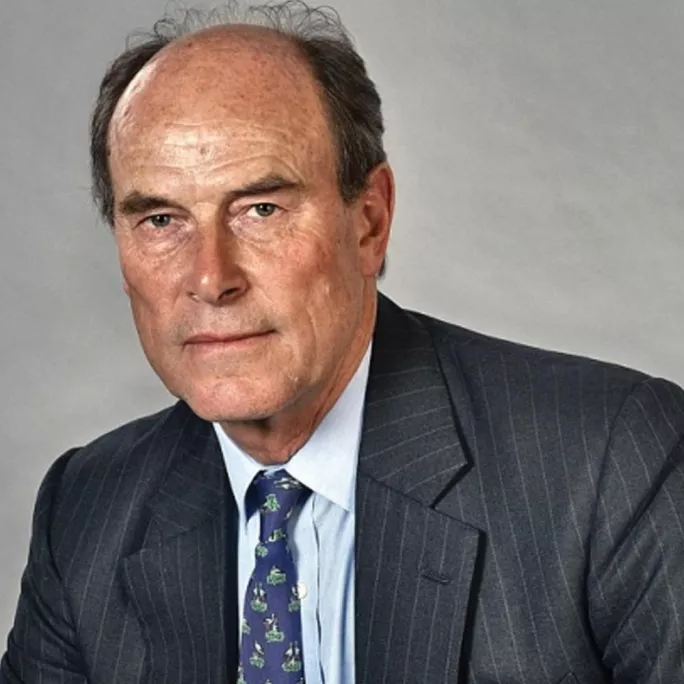How David Hoare was forced to step down as Ofsted chair

An air of tension left Ofsted’s HQ this week, as the watchdog’s chairman, David Hoare, finally resigned.
For the most of the last month, pressure had been building over his comments revealed by TES, describing the Isle of Wight as a poor, white “ghetto” that suffered from “inbreeding”.
Mr Hoare had been trying to draw attention to the work that was needed to improve education standards in a relatively low performing area of the country.
But the language he used at a Teach First conference, replete with references to his own dinner parties and champagne, did not help Ofsted’s case. The condemnation he received when his remarks were revealed was instant and universal.

And the anger, it later emerged, extended to senior figures within Ofsted itself.
But in the immediate aftermath, Mr Hoare clung on to the £46,000-a-year role.
He quickly apologised for “any upset or offence” he had caused and agreed to pay a visit to the Isle of Wight to “learn about the challenges” it faces.
It looked as though Mr Hoare had done enough to retain his position, leaving a growing sense of outrage among his Ofsted colleagues. But then, on Monday, Justine Greening suddenly released the pressure. Upon returning from holiday, the new education secretary called Mr Hoare in for a meeting and demanded that he quit.
‘Senior staff were appalled’
TES understands that the move has been strongly welcomed by Ofsted’s leaders, not least the current chief inspector, Sir Michael Wilshaw, who privately felt that Mr Hoare should have stepped down in the immediate aftermath of his comments.
A source close to the chief inspector said: “Sir Michael was incandescent about the remarks and senior staff were appalled. There is certainly relief among them now that he has done the decent thing and stepped down.”
Senior figures within the inspectorate are believed to have been particularly “unhappy” about his comments that he “did not want a teacher” to become the next chief inspector.
Mr Hoare said he wanted someone from outside the profession, because he wanted a chief inspector who “would listen very closely” and “understand the issues”.
His resignation comes at a critical time for the inspectorate. Sir Michael Wilshaw is entering his final few months as chief inspector; his replacement, Amanda Spielman, currently chair of exam regulator Ofqual, has faced question marks over her suitability for the role.
In July, the Commons Education Select Committee tried to block her appointment, citing concerns that she “did not appear to recognise the importance of building bridges with the professions inspected by Ofsted”.
Making a hard job harder
One source suggested that Mr Hoare’s comments would make it harder for Ms Spielman to do her job when she starts in January - that they will be like an “albatross around her neck”.
Mr Hoare had been attempting to build bridges when he made his ill-advised comments last month.
Speaking to a room of young teachers at the Teach First event in Leeds, the Ofsted chair - who made his name as a corporate troubleshooter - was explaining that policymakers were guilty of ignoring disadvantaged coastal towns when it came to tackling educational underperformance.
But any serious message was lost in the delivery, as Mr Hoare recounted how the issue was often a topic of conversation with guests at a house he owns overlooking the Isle of Wight.
The comments sparked outrage from the leader of the Isle of Wight Council, Jonathan Bacon, who described them at the time as “ill-judged” and “an insult”.
And it now seems that Ms Greening was also appalled. A source within the Department for Education said: “She believed that [Mr Hoare’s resignation] was in the best interests of Ofsted and that it would help maintain the confidence of the education and care sectors.”
But if the immediate pressure at Ofsted has been eased, critics believe that its problems may still be far from over.
Mary Bousted, general secretary of the ATL teaching union, said: “It’s a very unstable time for the organisation.”
She suggested that Ms Spielman would now be forced to keep Ofsted out of the limelight, saying: “She will have to be as safe as houses. This is not the type of transition period that Ofsted would have wanted as Michael Wilshaw steps down.”
Malcolm Trobe, interim general secretary of the Association of School and College Leaders, said it was “crucial” that the watchdog appointed a new chair as soon as possible.
“It’s a very important appointment; we have a new HMCI coming in in four months’ time so it is vital they find someone quickly,” Mr Trobe said. “Ofsted is a very big organisation, with a very wide responsibility, so it is going to need someone with considerable stature.”
You need a Tes subscription to read this article
Subscribe now to read this article and get other subscriber-only content:
- Unlimited access to all Tes magazine content
- Exclusive subscriber-only stories
- Award-winning email newsletters
Already a subscriber? Log in
You need a subscription to read this article
Subscribe now to read this article and get other subscriber-only content, including:
- Unlimited access to all Tes magazine content
- Exclusive subscriber-only stories
- Award-winning email newsletters